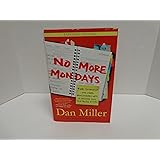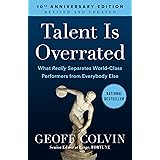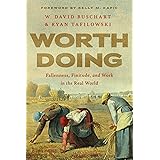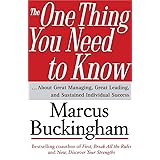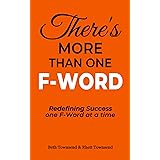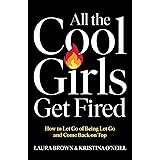Navigating the Corporate Labyrinth: Essential Insights for Your Professional Journey
Embarking on a new corporate career often presents unforeseen challenges. Many professionals find themselves ill-prepared for the intricate dynamics of the modern workplace. This article, building on the valuable perspectives shared in the video above, aims to illuminate common pitfalls and offer actionable strategies. Mastery of these insights can significantly enhance one’s professional trajectory and well-being.
A proactive approach to career development is paramount. Understanding the unwritten rules of corporate engagement fosters resilience. Such knowledge is frequently acquired through arduous experience, a path that can be mitigated with foresight.
Strategic Mentorship: Cultivating Growth in Your Corporate Career
The pursuit of effective mentorship is a critical component of early career success. While onboarding processes often assign a ‘buddy’ or suggest reliance on managers, a more discerning strategy is recommended. Identify the preeminent performers within your operational domain.
These individuals exemplify best practices and demonstrate exceptional proficiency. Your mission should involve connecting with these high-achievers. Their operational methodology and strategic insights can prove invaluable.
Identifying and Engaging Top Performers
Proactive observation is a key initial step. Shadowing these individuals, when feasible, provides direct insight into their workflow. Understanding their decision-making processes and interpersonal engagement strategies is crucial. Furthermore, informal interactions, such as weekly lunches, can evolve into more structured mentorship dialogues. Formalized mentoring relationships are known to accelerate skill acquisition and career advancement. Aligning with a proven performer’s operational cadence optimizes your own professional development. Learning from suboptimal performers can inadvertently impede progress, underscoring this selective approach.
Workplace Dynamics: Navigating Office Politics and Gossip
The corporate environment is frequently characterized by complex social dynamics. It is often perceived as more intricate than collegiate or even secondary school social structures. Gossip and exclusionary behaviors are unfortunately prevalent in some professional settings.
Mental preparedness for these situations is highly advantageous. Unchecked gossip can create a toxic atmosphere. Such environments are detrimental to individual well-being and team cohesion.
Maintaining Professional Detachment
Engagement in office gossip is strongly discouraged. Individuals who participate in gossiping with you often engage in similar behavior about you. Optically, association with such individuals can also undermine one’s professional brand. A principled stance against negative discourse is advisable. When confronted with disparaging remarks about colleagues, a counter-narrative of positivity is an effective tactic. This redirects the conversation and establishes personal boundaries. It ensures one’s non-participation in unproductive interpersonal conflict, thereby preserving integrity and focus.
The Imperative of Breaks: Lunch, Socialization, and Personal Finance
The inclination to work continuously, foregoing scheduled breaks, is a common early career error. This practice, often driven by a desire to project diligence, frequently leads to burnout. Moreover, it significantly hinders the development of crucial professional relationships.
Lunch breaks, in particular, serve a dual purpose. They offer essential respite, crucial for mental rejuvenation. They also provide invaluable opportunities for informal team bonding and networking.
Optimizing Lunch Breaks and Financial Prudence
Failure to take mandated breaks can adversely affect productivity and team integration. Paid breaks are often factored into compensation packages. Employees are legally entitled to these periods of rest. Additionally, the financial implications of purchasing lunch daily merit careful consideration. A daily expenditure of $20 on lunch, coupled with a $5 coffee, represents a substantial annual outlay. Over a standard working year, this totals approximately $6,500. For entry-level salaries, which may lack comprehensive benefits, these costs quickly accumulate. Bringing packed lunches is a simple yet effective cost-saving measure. This strategy directly impacts personal financial health, particularly for those in their initial corporate career phase.
Practical Workplace Logistics: Commuting and Desk Essentials
Efficient management of daily logistics can significantly reduce stress. Commuting attire, often overlooked, presents an opportunity for practical adjustment. Formal footwear or delicate clothing items are frequently unnecessary for the commute itself.
A pragmatic approach prioritizes comfort and protection from environmental factors. This includes selecting appropriate travel wear. Such preparations simplify the transition into the professional workday.
Streamlining Your Daily Routine
The practice of wearing comfortable shoes for the commute, changing into professional footwear upon arrival, is widely adopted. Similarly, practical outerwear, like track pants, can be utilized during inclement weather. Professional attire can then be changed at the office. This small adjustment enhances comfort and preserves clothing quality. Furthermore, maintaining a well-stocked personal desk kit is highly recommended. Essential items include feminine hygiene products, hand sanitizer, moisturizers, dental floss, mouthwash, and eyeglass cleaning supplies. Additionally, non-perishable protein bars and tissues are often useful. These provisions address minor personal emergencies, fostering a sense of preparedness and potentially aiding colleagues in need.
Office Etiquette and After-Work Engagement
Adherence to established office etiquette is fundamental for a harmonious work environment. Certain behaviors, while seemingly innocuous, can disrupt shared spaces. microwaving pungent foods, for instance, often generates strong, lingering odors. These can be offensive to colleagues.
Such actions inadvertently create discomfort for others. Consideration for collective well-being should always guide individual choices.
Cultivating Professional Relationships Beyond Hours
Foods with strong aromas, such as certain fish, should ideally be consumed cold or reserved for home. This demonstrates respect for shared office air quality. Conversely, after-work social events, often perceived as optional, hold significant importance. Initially, the appeal of immediate home return might outweigh participation. However, these informal gatherings are crucial venues for relationship building. Many pivotal professional relationships, including those leading to mentorships and promotions, are forged outside regular business hours. Strategic engagement in these events facilitates rapport and visibility. It is through such interactions that opportunities are frequently identified and capitalized upon.
Professional Boundaries: Colleagues Versus Friends
A nuanced understanding of workplace relationships is essential. While cordiality and camaraderie are beneficial, a clear distinction between colleagues and genuine friends must be maintained. Individuals encountered solely within the professional sphere, particularly if discussions remain work-centric, are typically colleagues.
This distinction is not merely semantic; it carries significant practical implications. Professional landscapes are inherently competitive. This environment may necessitate difficult decisions.
Navigating Professional Relationships with Discretion
Colleagues, even those with whom a strong rapport exists, may prioritize their own career advancement. This can sometimes involve actions that are detrimental to others. Maintaining a degree of professional detachment is a prudent strategy. This perspective helps in managing expectations regarding loyalty and support within a competitive framework. True friendships are generally cultivated outside the office, where interactions are personal and conversations are not bound by professional constraints. Recognizing this boundary protects one from potential disillusionment and encourages a focus on independent career advocacy. It underscores the importance of a realistic outlook on organizational dynamics.
The Reality of Imperfection: Embracing Mistakes and Growth
The pressure to achieve perfection in a new corporate career role is a common internal struggle. Many professionals experience significant anxiety over perceived failures or errors. This often leads to self-doubt and heightened stress levels. However, imperfection is an intrinsic aspect of the human experience.
Every individual, irrespective of their experience level, makes mistakes. This reality is frequently obscured by others’ reluctance to openly discuss their own missteps.
Fostering Resilience Through Self-Compassion
A seasoned recruiter, for instance, may acknowledge making several mistakes weekly. This illustrates the ubiquity of error, even among experts. The key lies not in avoiding mistakes, which is impossible, but in developing resilience. Learning from errors and integrating those lessons into future practice is paramount. Releasing the self-imposed pressure for flawlessness liberates mental energy. This energy can then be redirected towards productive learning and genuine professional growth. It is critical to internalize that a job, fundamentally, is a component of life, not its entirety. This perspective helps in contextualizing setbacks and maintaining a healthy work-life balance.
Strategic Career Management: Avoiding “Kool-Aid” and Advocating for Value
Many organizations skillfully articulate their unique value propositions and cultivate distinct corporate cultures. While positive company culture is desirable, a critical perspective is warranted. Blind adherence to corporate narratives, metaphorically “drinking the Kool-Aid,” can be detrimental.
This can lead to career stagnation and undercompensation. It is crucial to remember that loyalty should be balanced with self-advocacy. An employee’s career trajectory should not be solely dictated by a single employer’s agenda.
Proactive Self-Advocacy and Compensation Negotiation
A common pitfall involves remaining with a company out of perceived loyalty, even when underpaid. Regular salary negotiations are non-negotiable for financial well-being. The cost of living consistently rises, necessitating annual adjustments to compensation. Failure to request a raise annually represents a direct loss of potential earnings. Professionals must confidently advocate for their deserved remuneration. A corporate career is a professional transaction; fair compensation for value provided is fundamental. If external circumstances, such as a lottery win, would lead to departure, then the intrinsic value of the position must be acknowledged and compensated accordingly. This assertive approach to compensation ensures equitable exchange and career progression.
Mastering Essential Technical Proficiencies and Self-Promotion
Underestimating the importance of foundational technical skills is a significant oversight for new professionals. While often perceived as basic, proficiencies in tools like Microsoft Excel and PowerPoint are indispensable. These applications form the backbone of data analysis, reporting, and presentation in numerous entry-level corporate roles.
A lack of proficiency necessitates reactive learning, which diverts time from higher-value tasks. Proactive skill acquisition in these areas yields substantial dividends.
Elevating Your Technical Toolkit and Visibility
Dedicated time, perhaps 40 minutes, invested in tutorials for Excel functionalities like pivot tables or basic VBA, can dramatically improve efficiency. This foundational competence allows for more sophisticated contributions. Beyond technical skills, effective self-promotion is vital. The misconception that good work is inherently noticed for promotion or raises is widespread. In reality, leadership teams are often preoccupied with their own responsibilities. Consequently, individual achievements can easily go unacknowledged. Proactive communication of successes is therefore essential. Regularly informing leadership of accomplished tasks and project milestones ensures visibility. This strategic sharing positions an individual favorably during performance reviews and compensation discussions. Emily’s own experience, where consistent self-reporting led to recognition, validates this approach. Ultimately, a strategic blend of technical mastery and consistent self-advocacy defines a successful corporate career.
First-Day Preparations and Confident Communication
The initial days in a new corporate role are critical for forming first impressions. Several minor details, often overlooked, can contribute to a smoother transition. Being prepared for an identity badge photograph, for instance, ensures a polished appearance. This seemingly small detail contributes to professional presentation.
Familiarity with organizational language is also crucial. Large corporations, in particular, frequently employ numerous acronyms. Deciphering these quickly aids comprehension and integration.
Asserting Your Voice and Opinion
Beyond logistics, cultivating confidence in voicing questions and opinions is paramount. New employees often hesitate to speak up in meetings, fearing a lack of tenure or expertise. However, active participation signals engagement and a willingness to learn. It also provides opportunities for unique perspectives to be heard. Your ideas, even early in your corporate career, possess inherent value. Leveraging your full voice, asking clarifying questions, and offering thoughtful opinions are crucial for authentic self-expression. Such contributions foster personal growth and can even lead to breakthrough ideas. This proactive approach to communication accelerates learning and establishes a reputation for thoughtful engagement.


